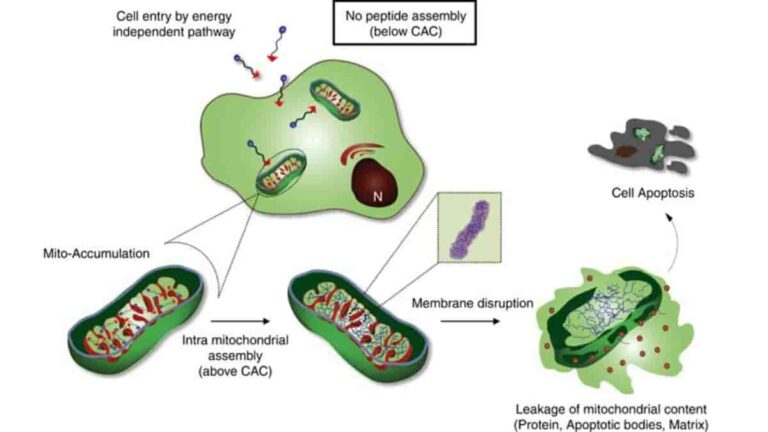A protein that helps regulate cell metabolism called AMPK (AMP-activated protein kinase) is a key driver of deadly high-grade brain cancers like glioblastoma, research from the Cincinnati Children’s Cancer and Blood Diseases Institute suggests. The finding challenges the current scientific consensus regarding AMPK. This is because current research literature characterizes it as a cancer suppressor,…
Category: Cancer
CDK5 Inhibition Halts Growth Of Glioblastoma
By inhibiting an enzyme called CDK5, Northwestern Medicine researchers were able to halt the growth of glioblastoma, an aggressive form of brain cancer. The discovery of this enzyme’s regulatory influence on glioblastoma may pave the way for a much needed improvement on current therapy options, said Subhas Mukherjee, Ph.D., research assistant professor of Pathology and…
What Is Cytokine Release Syndrome?
Cytokine release syndrome refers to a condition that may occur after treatment with some types of immunotherapy, such as monoclonal antibodies and CAR-T cells. Cytokine release syndrome is caused by a large, rapid release of cytokines into the blood from immune cells affected by the immunotherapy. Cytokines are immune substances that have many different actions…
CancerSEEK Blood Test Screens For Eight Types Of Cancer
A single blood test that screens for eight common cancer types and helps identify the location of the cancer has been developed by researchers at Johns Hopkins Kimmel Cancer Center. The test, called CancerSEEK, is a unique noninvasive, multi-analyte test that simultaneously evaluates levels of eight cancer proteins and the presence of cancer gene mutations…
Chronochemotherapy Could Be Effective Glioblastoma Treatment
Circadian rhythms could hold the key to novel therapies for glioblastoma, the most prevalent type of brain cancer in adults. In research with cell cultures, scientists determined that the timed production of a particular protein associated with tumor proliferation and growth is disrupted in glioblastoma cells. The discovery may lead to a more effective technique…
TTFields Therapy: Electric Scalp Device Slows Glioblastoma Growth
A device attached to a patient’s scalp which delivers a continuous dose of low-intensity electric fields is able to slow the growth of a deadly brain tumor, a new clinical trial suggests. The new treatment for glioblastoma uses alternating electric currents called tumor-treating fields (TTFields), delivered through an array of insulated electrodes affixed to a…
Circulating Tumor Cells Associated With Brain Metastasis
A distinct group of circulating tumor cells (CTCs) associated with brain metastasis has been detected by Houston Methodist cancer researchers. The finding brings cancer researchers closer to understanding how the “seeds” of metastatic disease can thrive in breast cancer patients and cause it to spread to the brain. Study leader Dario Marchetti, Ph.D, director of…
Organelle-localized Self-assembly Of a Peptide Amphiphile
A new method to target the mitochondria of a cancer cell has been developed by researchers affiliated with the Ulsan National Institute of Science and Technology(UNIST). The research team expects that their study could pave way for new generation of anti-cancer drugs. In-situ assembly of amphiphilic peptides with accompanying cellular functions inside a living cell…
Extracellular Vesicle Detection For Pancreatic Cancer Diagnosis
A novel method to identify pancreatic cancer early in its development that uses the sensitive detection of extracellular vesicles has been created by researchers at the Arizona State University’s Biodesign Virginia G. Piper Center for Personalized Diagnostics. Detection methods for the disease remains cumbersome and expensive, and often uncovers illness only at advanced stages, when…
